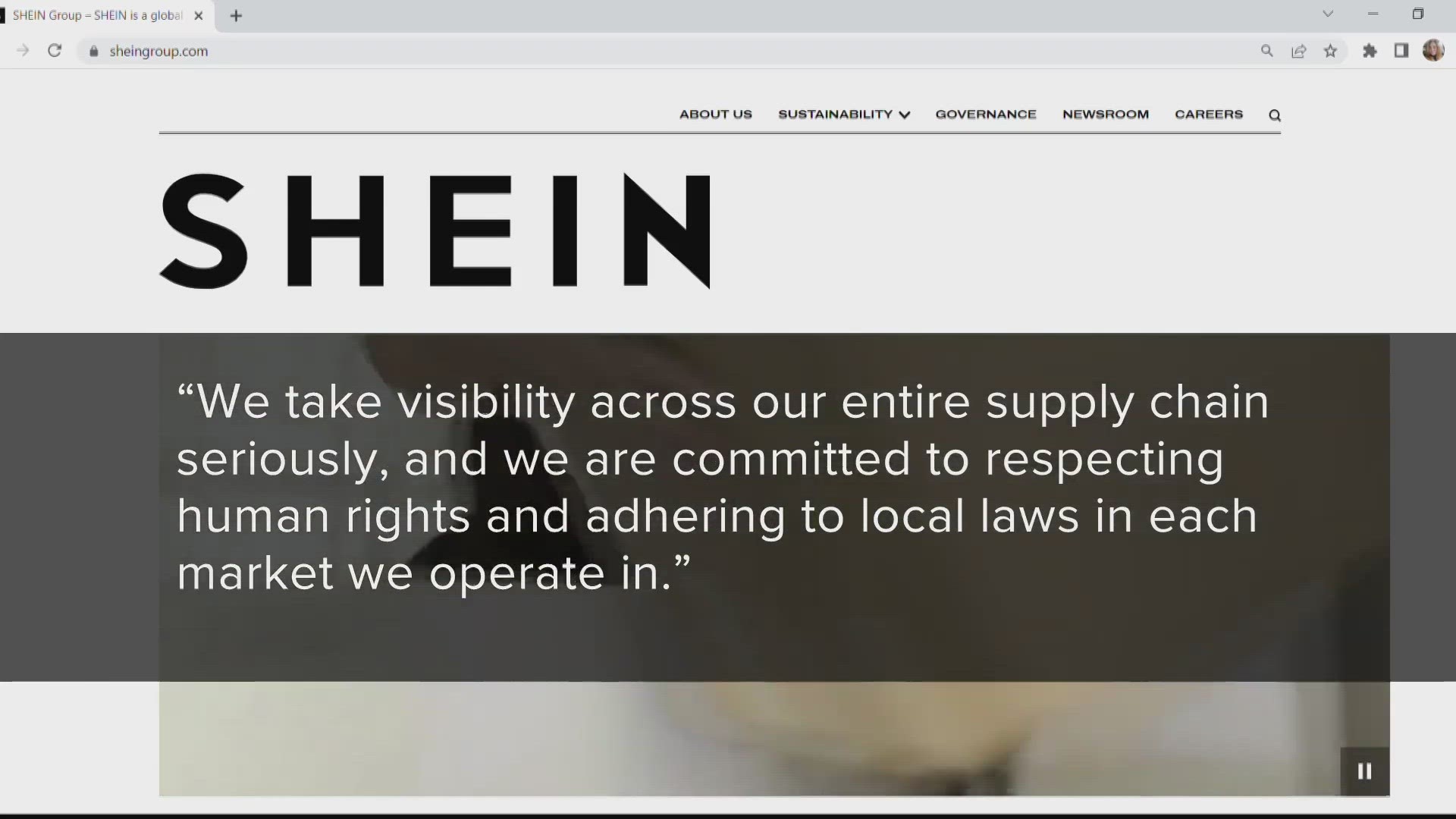WASHINGTON — There’s a growing movement on Capitol Hill to shut down fast fashion company SHEIN over labor, trade, and data concerns.
A new group literally called "Shut Down SHEIN" formed in March to educate lawmakers about its practices.
The Chinese company based in Singapore is popular among women, particularly young women and teens -- and is known for trendy pieces at extremely low prices.
As has happened with other fast fashion companies in the past, concerns are being raised over how they're achieving those low prices.
Often, young women promote their #SheinHauls on TikTok, showing off hundreds of dollars in clothes and accessories.
Shut Down SHEIN claims they're using these influencers to avoid paying billions of dollars in tariffs through a loophole that makes their customers the "importers of record."
That means the company is not responsible for the tariffs, and if an order is under $800, it won't trigger reporting requirements to U.S. Customs.
“This is what allows them to be accused of doing things like using slave labor in China, because the legal responsibility to prove that they are not is on the importer of record, which they claim not to be," Executive Director of Shut Down SHEIN, Chapin Fay, said.
He's been sharing these concerns with lawmakers since March.
One of those legislators is Virginia Congresswoman Jennifer Wexton.
She and 23 other legislators wrote a bipartisan letter to the Securities and Exchange Commission asking them to require SHEIN to certify they are not using forced labor ahead of an expected initial public offering.
“We've also been saying TikTok is the needle, SHEIN is the drug," Fay said. "These are all related issues. And we've been focused on shining a light on SHEIN's nefarious actions with with our government in D.C.”
A SHEIN spokesperson sent WUSA 9 the following statement:
"SHEIN has no suppliers in the Xinjiang Region. Our suppliers are based in regions including Brazil, Southern China, and Turkey. We take visibility across our entire supply chain seriously, and we are committed to respecting human rights and adhering to local laws in each market we operate in. Our suppliers must adhere to a strict code of conduct that is aligned to the International Labour Organization’s core conventions. We have zero tolerance for forced labor."
George Washington University Professor John Forrer said it'll be a challenge to actually block the company.
“It's actually quite difficult to enforce sanctions," Forrer said. "There's a lot of money to be made, so people are highly motivated to try to bypass it. So even if they passed another law, I'm not sure that in and of itself, right, we'll be able to change it. I would say more likely is the pressure to name and shame.”
Some of the other concerns government agencies have raised about SHEIN are data sharing and environmental impact.
Shein is definitely not the only company facing this kind of scrutiny. Temu has also been named in an SEC report, to cite one example.

